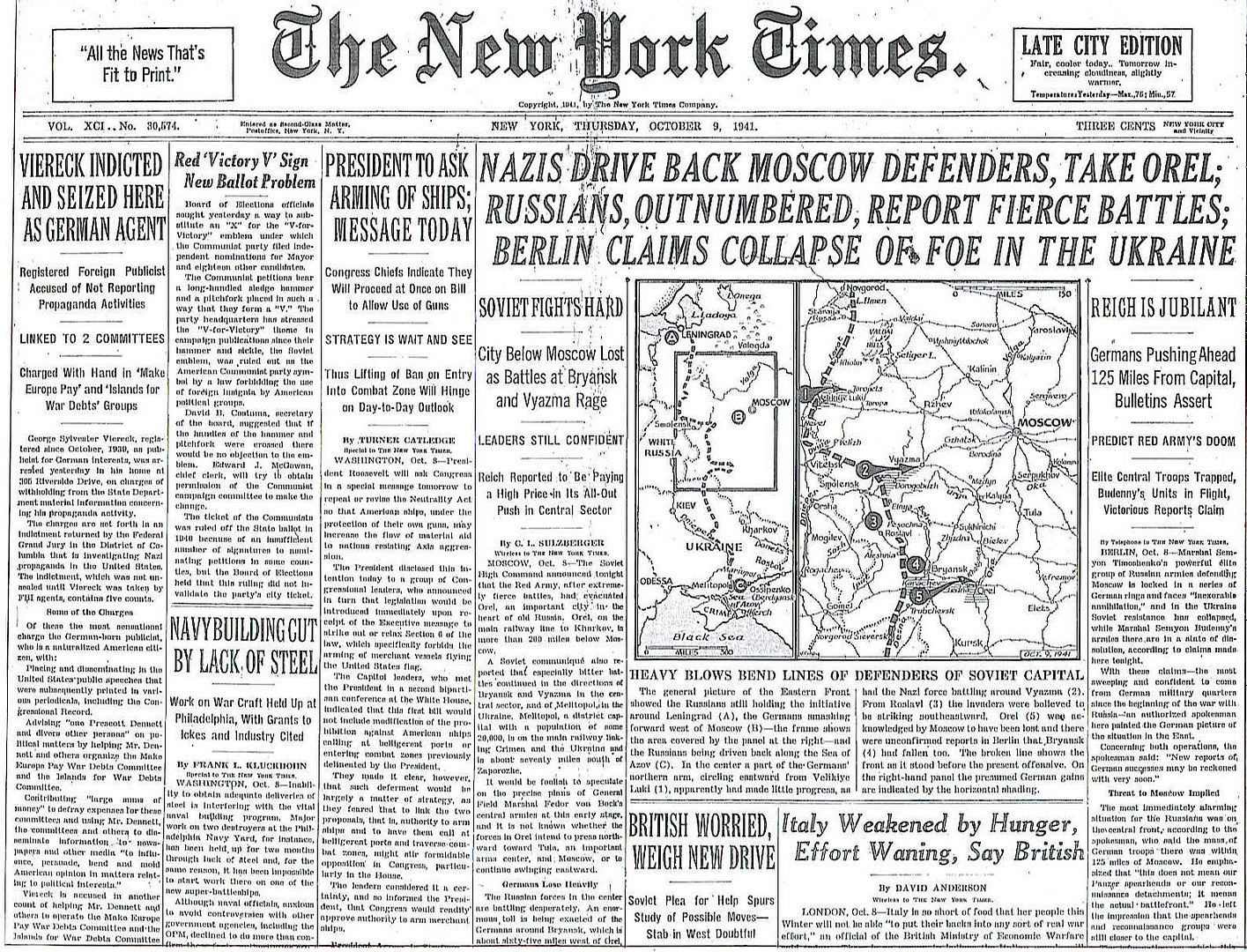
Posted on 10/09/2011 6:02:45 AM PDT by Homer_J_Simpson

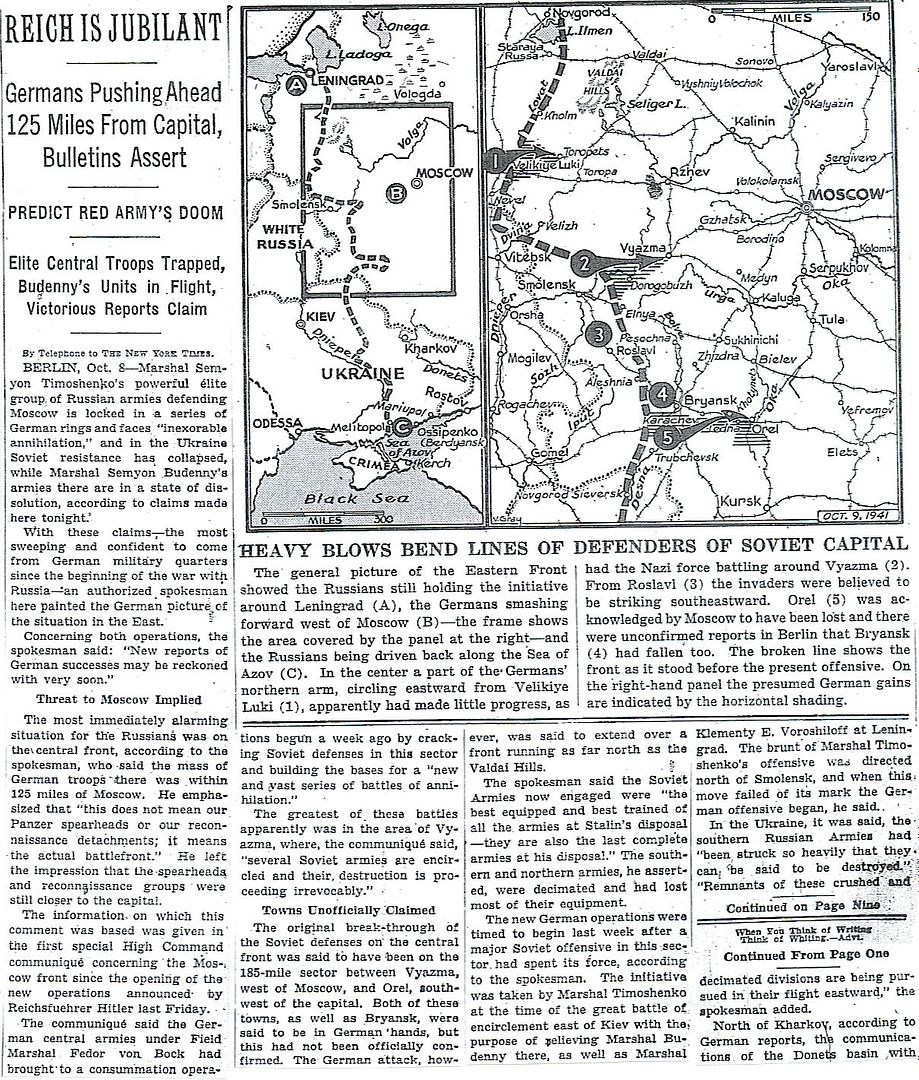
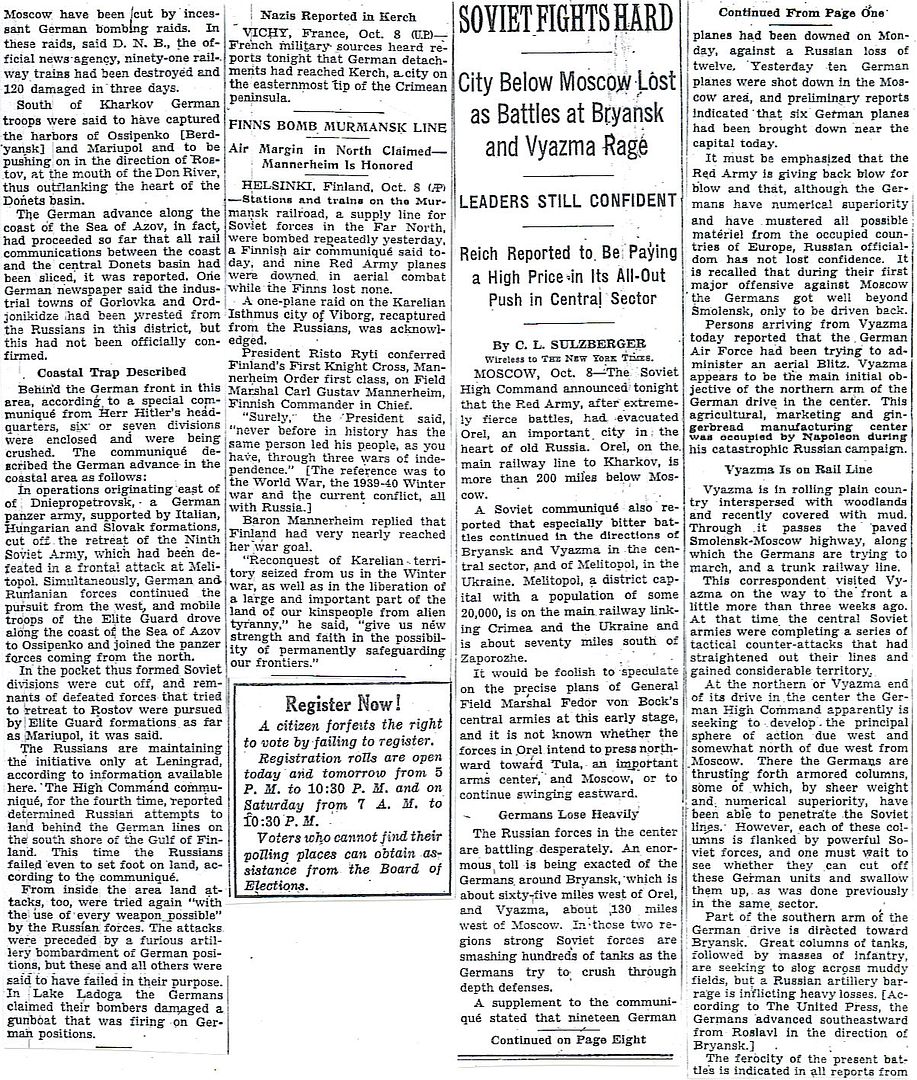
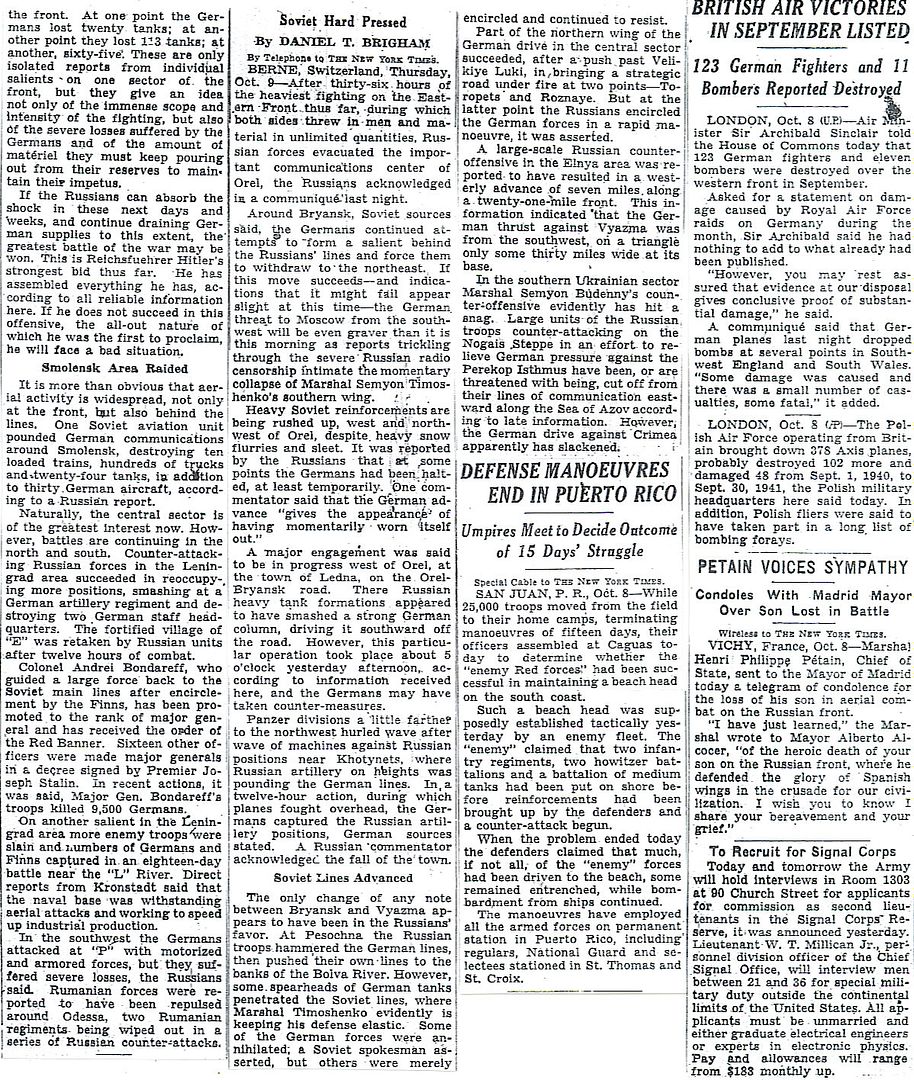
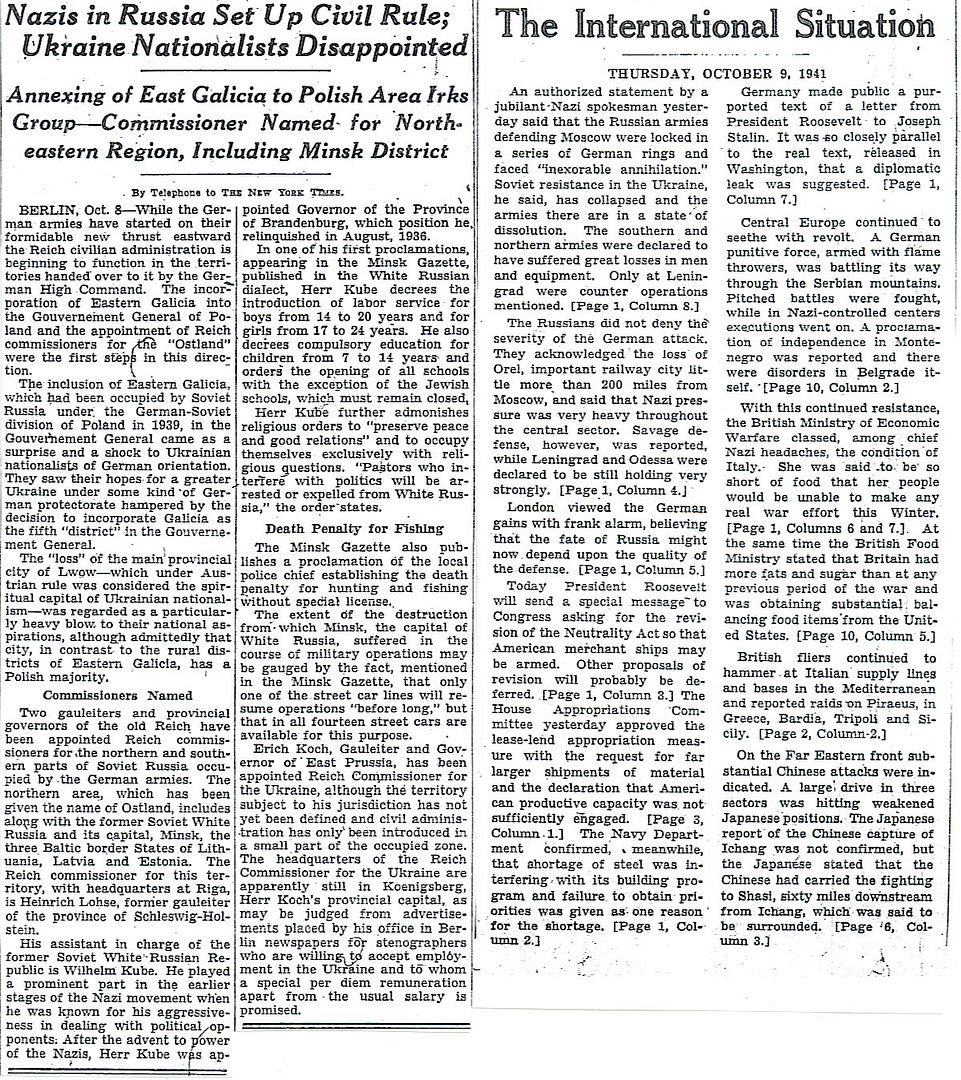
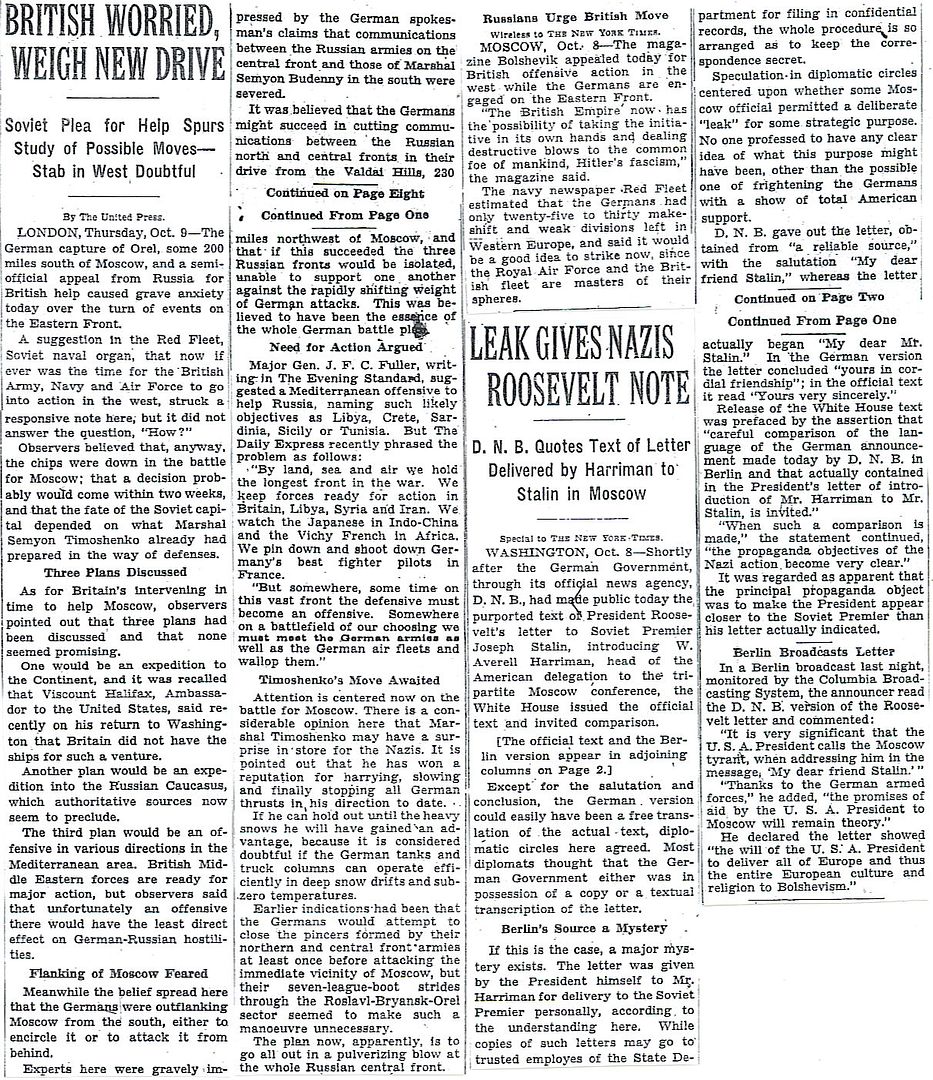
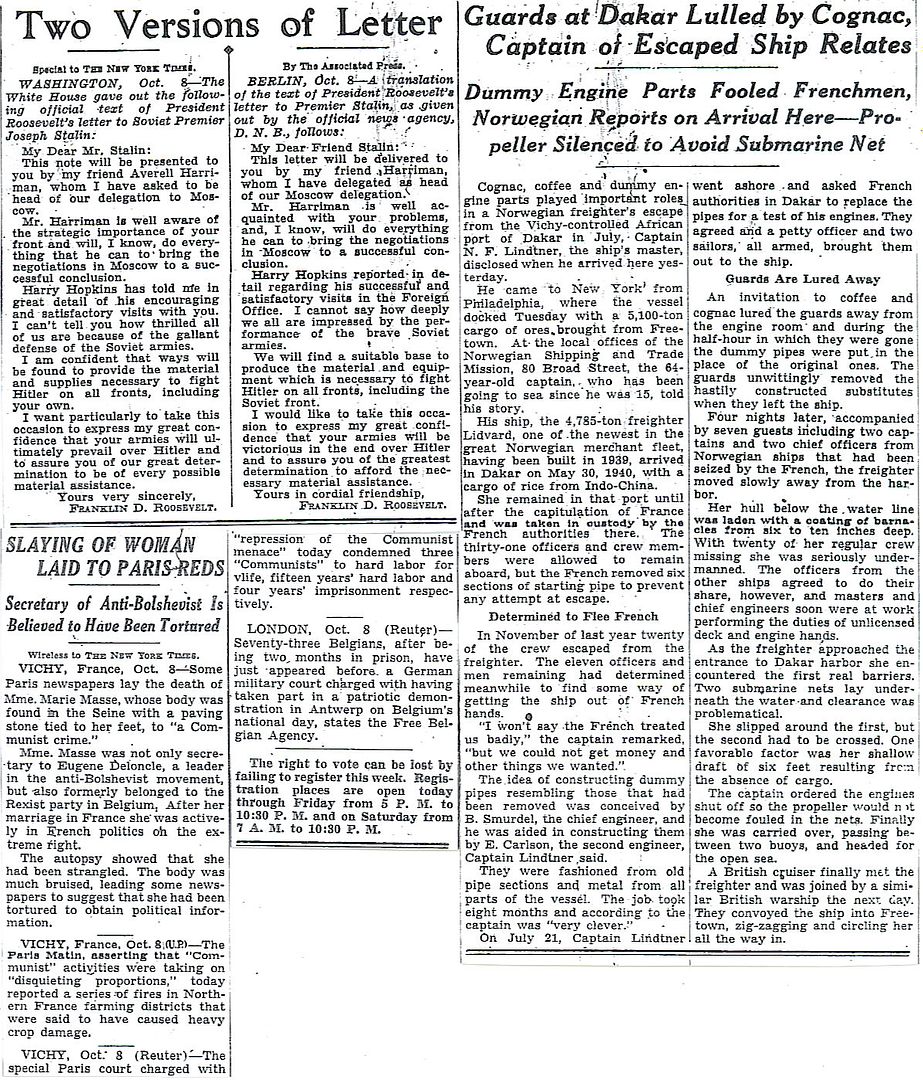
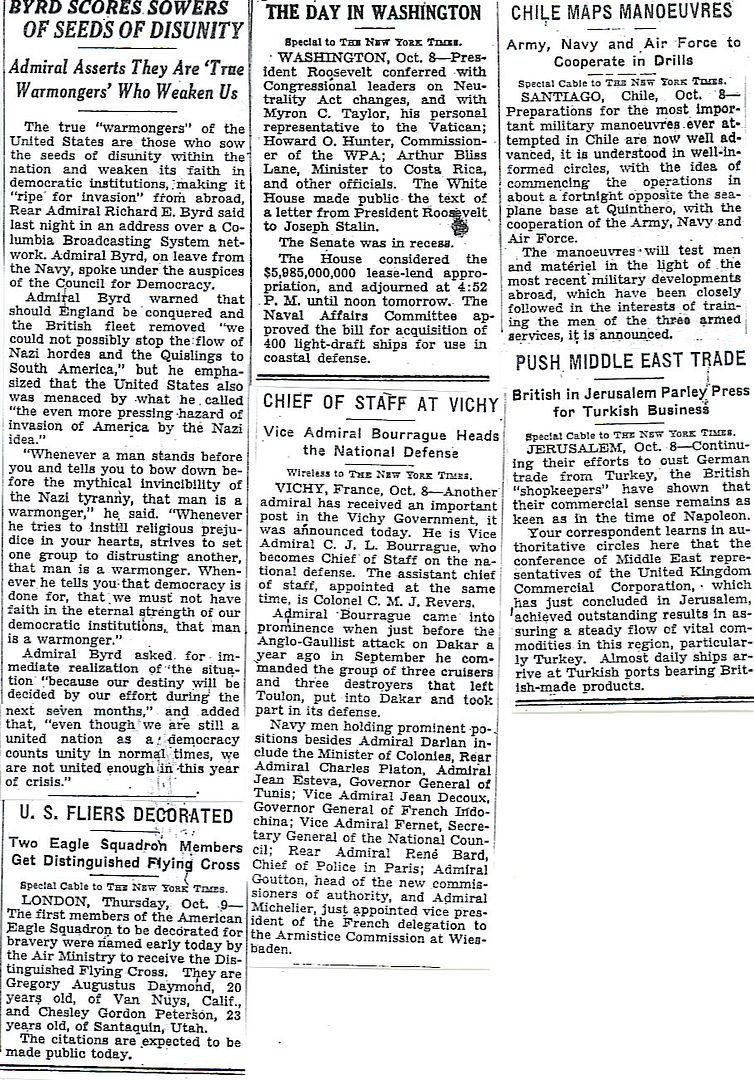
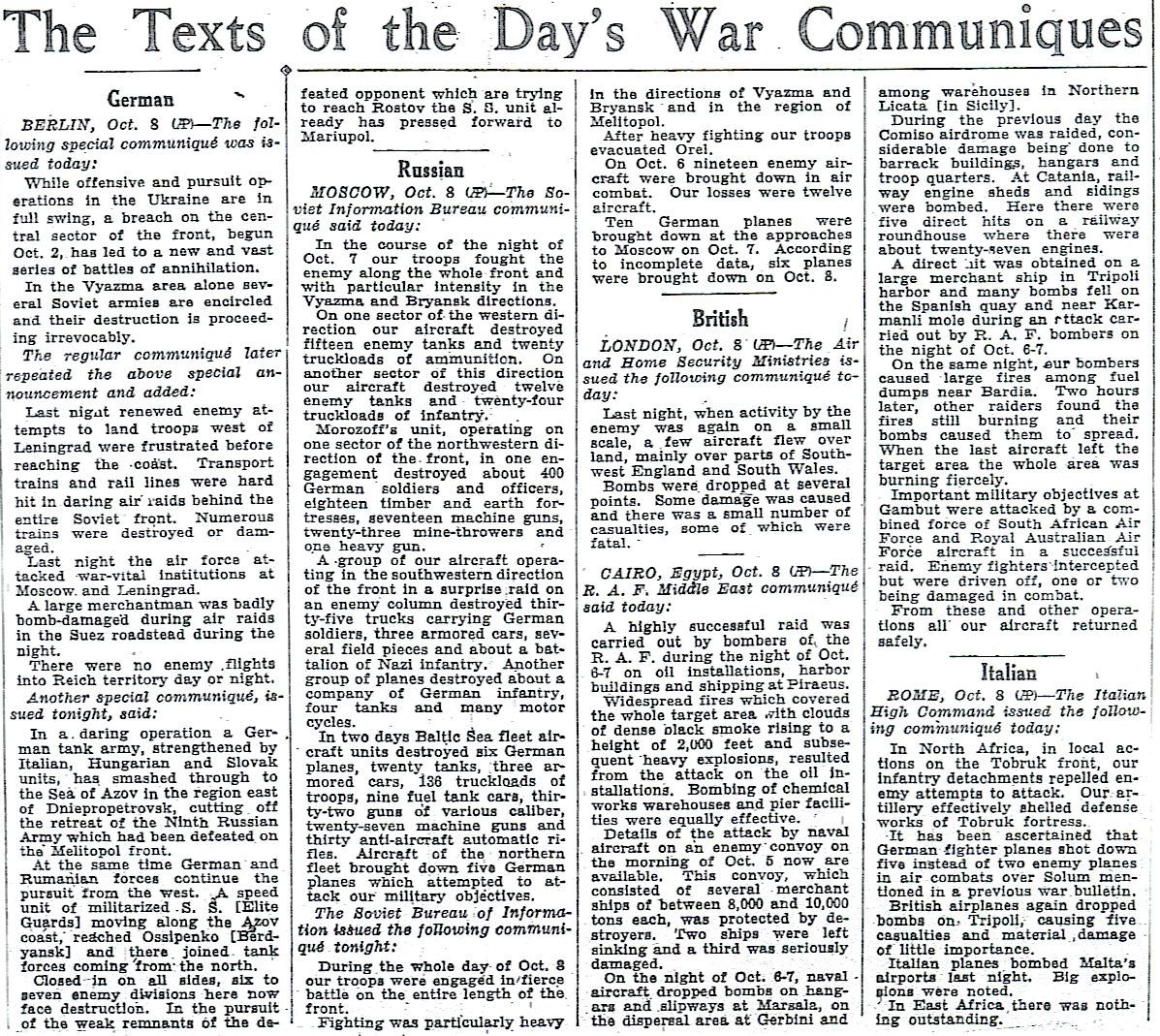
http://www.onwar.com/chrono/1941/oct41/f09oct41.htm
Americans arming merchant ships
Thursday, October 9, 1941 www.onwar.com
In Washington... US President Roosevelt asks Congress to allow the arming American merchant ships and to repeal parts of the Neutrality Act.
http://homepage.ntlworld.com/andrew.etherington/month/thismonth/09.htm
October 9th, 1941
UNITED KINGDOM:
Destroyer HMS Onslaught launched.
Destroyer HMS Southwold commissioned.
Trawler HMS Anticosti laid down. (Dave Shirlaw)
GERMANY: Adolf Hitler announces that the war in the East, for all intents and purposes, has already been decided in favour of the Reich. (Jack McKillop)
U-215, U-512 launched.
U-334, U-591 commissioned. (Dave Shirlaw)
EUROPE: Turkey signs a trade treaty with Germany to supply raw materials in exchange for manufactured goods.
AUSTRALIA: Minesweeper HMAS Toowoomba commissioned. (Dave Shirlaw)
U.S.A.: President Roosevelt asks Congress to allow US merchant ships to be armed and to repeal various sections of the Neutrality Act.
The motion picture “Texas” is released today. Directed by George Marshall, this western stars Claire Trevor, William Holden, Glenn Ford and Edgar Buchanan. The plot has two Virginia buddies heading for Texas and then splitting up. Years later, one has become a cattle rustler and the other a cattleman. To add romance, both compete for Claire Trevor’s affections. (Jack McKillop)
Submarine USS Untamed laid down.
Heavy cruiser USS Quincy laid down. (Dave Shirlaw)
ATLANTIC OCEAN: By chance U-71 met U-204, U-83 and U-372 some 500 miles off Spain. (Dave Shirlaw)
Here’s an add for your library if you like Prange’s work: “The Storm of War” by Andrew Roberts. Just out this year in the US. Lots of details, and lots of those little “Gordon-like” human interest sidelines. His coverage of the Soviet campaign is excellent.
"Hans Frank, governor-general of Occupied Poland, tells ministers of the German Generalgouvernement that Jews 'must be done away with one way or another.' "
"A mother holds her newborn baby in the Kovno (Lithuania) Ghetto hospital.
A Jewish star is sewn onto the child's blanket, marking the baby for probable death just minutes after he or she was born.
Of the 30,000 original residents of the Kovno Ghetto, which was established in the summer of 1941, less than ten percent survived."
"Bratton thought that 'the Japanese were showing unusual interest in the port at Honolulu,' but his chief, General Miles, saw nothing to get excieted about.
He veiwed the message as part of the normal Japanese tyraffic concerning American naval movements..."
Yet another clear warning which should not have been ignored.
Interestingly, Henry Clausen names Col Bratton as one of those most responsible for US failures at Pearl Harbor, but Clausen does not mention Bratton's boss, General Miles.
This quote from Prange shows the real problem was not underlings like Bratton, but their superiors, like Miles -- or Miles' boss, Marshall.
Thanks for the tip. Any number of readers - regulars or otherwise - are looking for new material on the war.
Just to be clear, Clausen names Bratton as one of the most responsible for his handling of the 14 part message, not this particular document. He also isn’t as kind to the upper brass as you imply. General Leornard T. Gerow and FDR are also on his list of most responsible along with Bratton and others. He also blasts both General Miles and General Marshall for committing perjury at the Army Pearl Harbor Hearings Board. Though he states that he understands why they did it, he still does not approve of it.
That aside, this is just another example that shows that culpability for the failure to defend Pearl Harbor goes completely up and down the chain of command from the President down to the field commanders and many of their subordinates. General Miles, in this case, never followed up on this message. Bratton was asked if Miles ever asked him his opinion on this message to which Bratton replied that Miles had not. Clearly Miles should have followed up on this, but it is also of note that Bratton never felt compelled to approach Miles with his concerns over this either.
Bratton also goes on to testify that this breaking Pearl into a grid is a practice used to shorten radio messages. The Navy was doing this as well. What would be of particular interest to me would be to see if anyone has ever bothered to look into the possibility of Japanese messages asking to report ship dispositions in the Philippines. Bratton himself testified that the U.S. Navy was making a concerted effort to know where every Japanese capital ship was at all times. It only stands to reason that the Japanese would be doing the same.
That is not the impressions Prange's words leave.
Reading Prange's report, you'd naturally suppose there must have been discussions, even debates going on.
But you're telling us there were no actual talks, just words flittering briefly inside the minds of these characters?
Here's what Bratton told Senator Lucas on the subject during the Pearl Harbor hearings:
Senator Lucas: Now one question further with respect to the magic that came in dividing Pearl Harbor into five different sections. You told Senator George that you were familiar with that, as I recall.Colonel Bratton: Yes, sir.
Senator Lucas: Did Miles ask you for your opinion as to what you believed that sort of a message meant?
Colonel Bratton. No, but I was prepared to give it to him if he had, because I had discussed this message and similar messages with my opposite number in the Navy at some length on numerous occasions.
Well, that certainly makes my case -- there were lots of discussions with, at the least, Naval Intelligence over these "bomb plots", so all understood that some, such as Bratton, believed them important.
So my statement here is accurate: the "bomb plots" represent yet another clear warning that Pearl Harbor might be a target, a warning the government chose to ignore.
It also proves the point that the men in the field were not reacting properly to the information they were receiving either. Bratton should have pursued this, especially when his superior had disregarded it, if he felt it was this important. Of course one reason for this could be that he didn’t attach the total significance of the message until after the attack so he didn’t pursue it further at the time when Miles didn’t ask him about it. His testimony on this is through the prism of hindsight so its importance has certainly increase from the time he received it and the time he testified about it. But to say that the government chose to ignore it is just looking at it with blinders on, it wasn’t just ignored by the upper echelon the chain of command. By Bratton not following up on this, he also made the decision to ignore it.
Also, you should realize that Bratton’s discussions with Naval Intelligence on this does not make your case that there were “lots of discussions” because nothing could be further from the truth. There was a clear lack on communications between the services that will have some dire consequences. There were cases where some low level personnel discussed items with counterparts in other services, but as a whole there was no significant communication that would have let the services make a coordinated effort to understand the overall picture.
Disclaimer: Opinions posted on Free Republic are those of the individual posters and do not necessarily represent the opinion of Free Republic or its management. All materials posted herein are protected by copyright law and the exemption for fair use of copyrighted works.